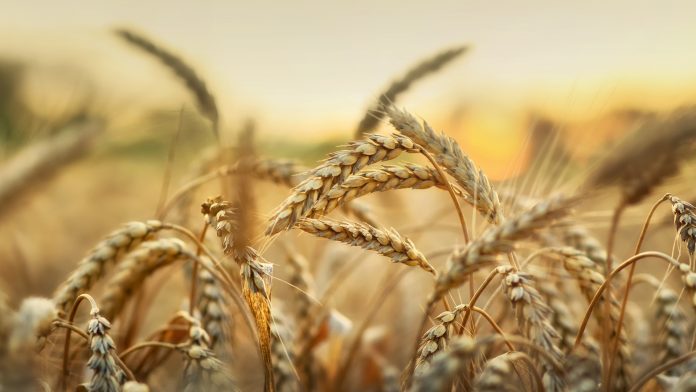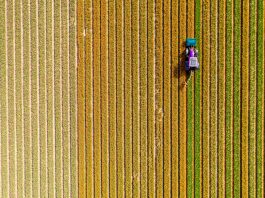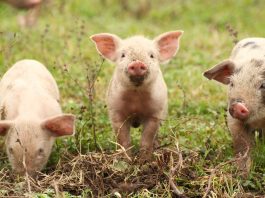Covering crop seeds with bacteria taken from a desert shrub can boost wheat harvests in hot fields and help crops survive heatwaves, which could protect the future of food.
Global warming has heightened the number of serious heatwaves, which leads to reduced crop yields, threatens food supplies, and causes massive damage to the agriculture industry.
There are plants that do not die in extreme heat; some plants have natural heat tolerance, while other species develop heat tolerance after prior exposure to higher temperatures.
However, breeding heat resistant plants is expensive and time-consuming, and slightly warming entire fields proves even more difficult.
In efforts to find solutions to the extreme conditions that cause crops to perish, there has been a growing interest in harnessing microbes to protect plants. Now, biologists have demonstrated that root-dwelling bacteria can support their herbaceous hosts to endure extreme conditions, such as drought, excessive salt or heatwaves.
“Beneficial bacteria could become one of the quickest, cheapest and greenest ways to help achieve sustainable agriculture,” said Kirti Shekhawat postdoc at King Abdullah University of Science and Technology, adding that: “However, no long-term studies have proven they work in the real world, and we haven’t yet uncovered what’s happening on a molecular level.”
With the intention of filling this knowledge gap, Shekhawat, alongside a team of researchers led by Professor Heribert Hirt, have selected the beneficial bacteria SA187 that lives in the root of a robust desert shrub, Indigofera argentea.
They covered wheat seeds with the bacteria, then planted them in their lab with some untreated seeds. After leaving the crops for six days, they heated them at 44° Celsius for a duration of two hours. “Any longer would kill them all,” explained Shekhawat.
The untreated wheat ceased to grow and suffered from damaged leaves. Meanwhile, the treated wheat remained unharmed and flourished, indicating that the bacteria had triggered heat tolerance.
“The bacteria enter the plant as soon as the seeds germinate, and they live happily in symbiosis for the plant’s entire life,” said Shekhawat.
The researchers then grew wheat in natural fields in Dubai for several years. Here, the temperatures can reach 45 ° Celsius. Due to the heat, wheat is usually only grown during winter in Dubai. However, the bacteria coated crops consistently produced yields between 20 and 50% t higher than normal.
Many other bacteria hold the ability to protect plants against a diverse range of threats, from droughts to fungi. The research team is currently testing bacteria on other crops, including vegetables.
“We have just scratched the surface of this hidden world of soil that we once dismissed as dead matter,” commented Professor Hirt. “Beneficial bacteria could help transform an unsustainable agricultural system into a truly ecological one,” he added.





